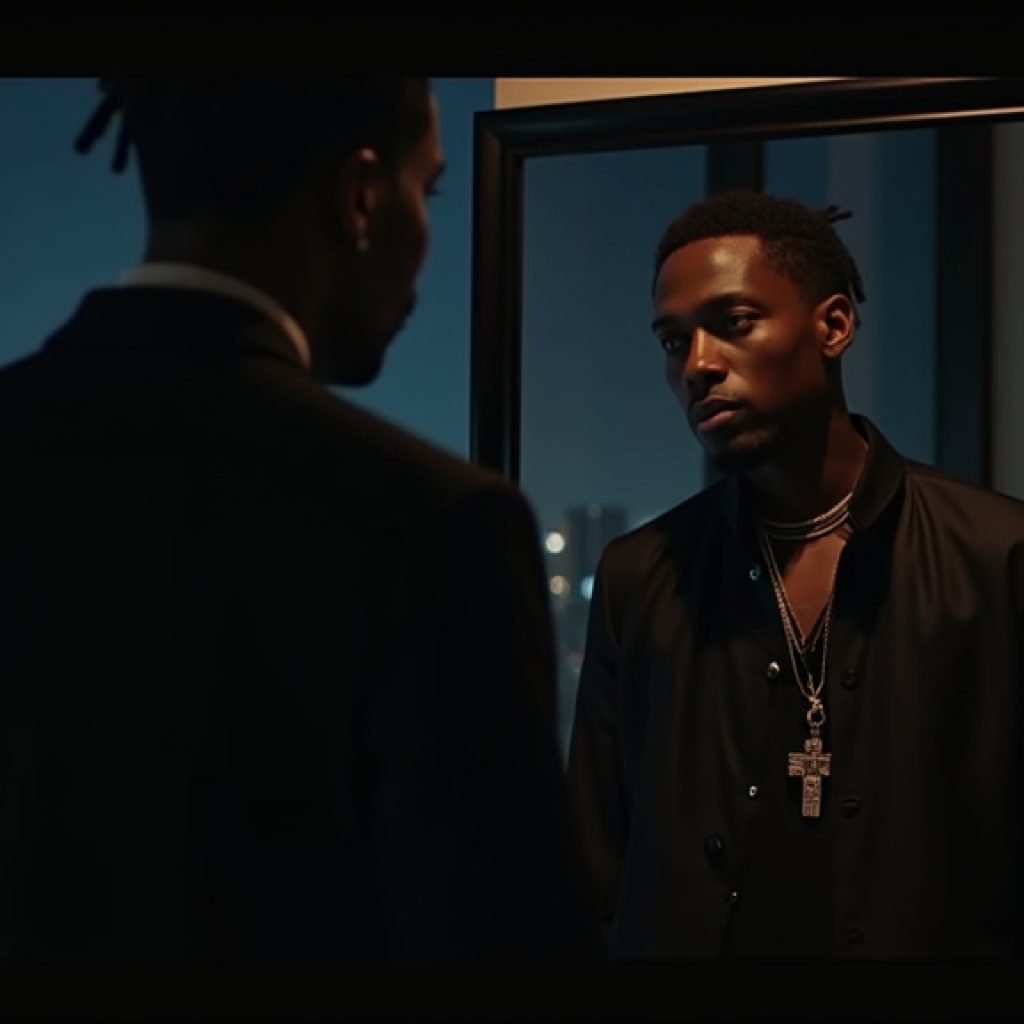In the intricate tapestry of hip-hop, where loyalty is often revered as a cardinal virtue, veteran artist Fat Joe finds himself in a complex predicament. Despite his staunch adherence to a code that deems ‘rats’ unacceptable, the Bronx legend has confessed to an ongoing, deep appreciation for Gunna’s latest musical offering, “The Last Wun.” This internal conflict, born from personal experiences and a commitment to a perceived hip-hop ethos, was laid bare on a recent episode of the “Joe and Jada with Jadakiss” podcast.
Fat Joe, a figure known for his enduring presence and vocal opinions within the culture, revealed that Gunna’s album has been on constant repeat for him. He shared that he listened to the entire project, “front to back, without skipping,” during a lengthy flight, indicating a genuine enjoyment of the music. This admission, however, is juxtaposed with his deeply ingrained belief system regarding betrayal and disloyalty within the music industry and beyond.
Chart-Dominating Sounds of “The Last Wun”
Gunna’s “The Last Wun” has undeniably made a significant impact since its release. The album debuted at number 3 on the all-genre Billboard 200 chart, signaling strong commercial performance and widespread listener engagement. Furthermore, it claimed the top spot on both the Billboard Top Rap Albums chart and the Top R&B/Hip-Hop Albums chart, marking its dominance in its genre. In its first tracking week, the project accumulated approximately 80,000 equivalent album units, with the vast majority stemming from its robust streaming performance, totaling over 104 million on-demand audio and video streams. This success underscores Gunna’s continued relevance and ability to connect with a large audience, even amidst controversies surrounding his career.
The Unwavering Code of Loyalty
For Fat Joe, the appreciation of music is inextricably linked to his principles, particularly concerning loyalty. He has repeatedly voiced his strong stance against individuals he labels as “rats,” a term often used in hip-hop to describe informants or those perceived to have betrayed their associates, especially in legal matters. This philosophy is not abstract; it is deeply rooted in personal history. Fat Joe recounted a particularly impactful experience from his past where a friend’s betrayal after facing federal charges led to confrontations and a profound loss of trust. “Betrayal carries no second chances,” Joe stated, underscoring the lasting scar this incident left on his perspective and his unwillingness to offer forgiveness in such situations. This conviction has shaped his broader outlook, leading him to express that artists are often among the most disloyal people, and has influenced his decision to cease signing new artists, citing the high probability of encountering such disloyalty.
Gunna’s “Disloyalty” Perception: The YSL RICO Context
The “disloyalty” perception surrounding Gunna primarily stems from his involvement in the YSL RICO case. While Gunna’s legal team maintained that he entered an Alford plea – a type of guilty plea where the defendant maintains innocence but acknowledges the prosecution has enough evidence for a conviction – and did not testify against his associates, his public acknowledgment of Young Thug’s label, YSL, also functioning as a gang in court has been a significant point of contention. This action has been widely interpreted by many within the hip-hop community and even former collaborators as a form of cooperation or snitching, a grave offense in certain circles. Figures like producer Southside and YSL co-founder Mondo have publicly distanced themselves from Gunna, stating their loyalty to Young Thug and vowing not to work with him due to this perceived breach. This division highlights the intense pressure and scrutiny artists face when navigating complex legal entanglements within a culture that often prioritizes unwavering solidarity.
The Art vs. The Artist: A Podcast Confrontation
On “Joe and Jada with Jadakiss,” the paradox of Fat Joe’s situation was directly addressed. Jadakiss, co-host and fellow hip-hop veteran, challenged Joe on the apparent contradiction of enjoying an album from an artist he publicly refuses to “co-sign” or fully support. Fat Joe acknowledged the dichotomy, explaining his position not as a rejection of the music itself, but as a refusal to endorse the artist behind it. He articulated that while the music might resonate, his personal principles and his sense of loyalty to the broader hip-hop culture prevent him from lending his full support to Gunna. This stance reflects a nuanced approach to separating artistic merit from personal and ethical judgments, a debate as old as art itself.
Navigating Loyalty and Legacy in Modern Hip-Hop
Fat Joe’s conflicted feelings about Gunna’s music encapsulate a broader, ongoing discussion within the hip-hop world. The case of “The Last Wun” illustrates the tension between appreciating an artist’s creative output and holding them accountable for their actions or perceived transgressions. In an era where legal battles and public perception constantly shape an artist’s narrative, figures like Fat Joe stand as reminders that while musical talent can be admired, the codes of loyalty and integrity remain paramount for many within the culture. His enjoyment of the music, coupled with his principled refusal to endorse the artist, highlights the complex moral landscape artists and fans alike must navigate. The music continues to reach the top charts, sparking stories and debates about the very essence of hip-hop culture, loyalty, and artistic integrity.

























